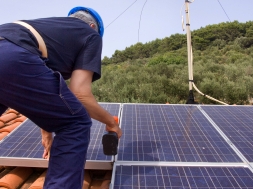‘Behavioural change’ to increase awareness on energy
Smart meters are the next generation of gas and electricity meters and they can offer a range of intelligent functions. For example, they can tell you how much energy you are using through a display in your home, and no one will need to come and read your meter because the smart meter can communicate that directly to your energy supplier.
intelligent functions. For example, they can tell you how much energy you are using through a display in your home, and no one will need to come and read your meter because the smart meter can communicate that directly to your energy supplier.
There are significant opportunities for smart meters to help change how people use energy at home and help households stop wasting energy. But simply installing the meters will not, by itself, lead to major energy savings. The changes need to be supported with policy.
In the past, energy efficiency policy has rightly focused on installing things like loft insulation. It has been less comfortable with measures that try and change how people use energy. Partly, it has been difficult to prove whether behavior change programmes, deliver real, sustained savings and crucially, how much they cost.
The Government is starting some excellent work in this area, both through the Behavioral Insights Team and DECC’s new Energy Demand Research Centers.
Smart meters offer the potential for tariffs that reward people who do not use energy at peak times or who can switch off equipment at short notice. It is far from clear that such innovation will be possible under the proposed changes. Secondly, it must also allow innovation in wider energy efficiency policy. That means testing a new Energy Efficiency Feed-in-Tariff, as proposed in the current consultation.
Finally, the Government must work harder to articulate how all these policy strands fit together, including national advertising and gaining civil society support for smart meters. This means sending a clear message that Government is doing everything it can to help people cut down on energy use, but people can also take some simple actions themselves to make a difference.
By intertwining these strands will our Government convince people that its changes are delivering two simple things: helping keep energy bills as low as possible and cost-effective carbon savings.



